As the academic year drew to a close, the students and faculty at WID earned highly competitive awards on campus and also won coveted honors from other esteemed institutions. Congratulations to our colleagues:
Kellett Mid-Career Award and Vilas Faculty Mid-Career Investigator Award
These awards recognize and support mid-career faculty, seven to twenty years past their first promotion to a tenured position. The Mid-Career award was created to provide needed support and encouragement to faculty at a critical stage of their careers.
John Denu, Professor of Biomolecular Chemistry, researches the regulation of metabolism and of the epigenome, an acquired set of chemical instructions that mediate the relationship between genes and environment. As director of the Epigenetics Theme at the Wisconsin Institute for Discovery, Denu has recruited new faculty members to campus and is building a transdisciplinary research effort on the molecular basis underlying epigenetic health.
Named professorships provide recognition for distinguished research contributions of the UW–Madison faculty. The awards are intended to honor those faculty who have made major contributions to the advancement of knowledge, primarily through their research endeavors, but also as a result of their teaching and service activities.
>
Stephen J. Wright, George B. Dantzig Professor of Computer Sciences, works on theory and applications of mathematical optimization, a field that concerns itself with techniques for finding the best element (as measured by a mathematical function) from a large or infinite set of possible alternatives. Wright has served as chair of the Mathematical Optimization Society and three terms as a trustee of the Society for Industrial and Applied Mathematics.
H. I. Romnes Faculty Fellowships, funded by WARF in recognition of the leadership of the late WARF Trustee President H. I. Romnes, are designed to bridge the gap between the Research Committee’s initial research support for new faculty and the Mid-Career Award for Faculty Research. This award is intended to recognize and support faculty up to six years past their first promotion to a tenured position.
Kristyn Masters, Associate Professor of Biomedical Engineering, uses tissue engineering to create in vitro models of diseased tissues and organs — including heart valves, blood vessels and the cells that initiate wound healing — with the goal of identifying new therapeutic targets for treating the diseases. Masters, who was named a Harvey D. Spangler Faculty Scholar in 2015, is also the faculty director for the Women in Science and Engineering residential learning community.
William Murphy, the Harvey D. Spangler Professor of Biomedical Engineering and professor of orthopedics and rehabilitation, is co-director of the Stem Cell and Regenerative Medicine Center and director of the Human MAPs (Human Models for Analysis of Pathways) Center. His research aims to create new biomaterials inspired by the materials found in nature, to understand stem cell behavior and induce tissue regeneration. He has filed 36 patents, co-founded multiple start-up companies, and is a fellow in the American Institute for Medical and Biological Engineering.
Vilas Distinguished Achievement Professorship
The Vilas Distinguished Achievement Professorships recognize professors whose distinguished scholarship has advanced the knowledge in their field, and whose excellence has also included teaching or service. The professorship provides a fixed allocation of flexible funds. The professor carries the title of Vilas Distinguished Achievement Professor for the duration of her or his career at UW-Madison.
John Yin, Vilas Distinguished Achievement Professor of Chemical and Biological Engineering, and Theme Leader of Systems Biology at the Wisconsin Institute for Discovery, studies virus growth and infection spread with computational models, antiviral cellular defense, and battling viruses with new strategies. Yin’s interests span all the way from pre-biotic chemistry through complex societies and even beyond, into the future of life and humanity.
Vilas Faculty Early Career Investigator Award
The award recognizes research and teaching excellence in faculty who are relatively early in their careers. It provides flexible funds which can be used for research, publication, project assistantships, or other expenses related to scholarly activity.
Rupa Sridharan, Assistant Professor of Cell & Regenerative Biology studies the epigenetics of cell fate change. She seeks the answers for: ‘How do the reprogramming factors activate pluripotency loci?’, ‘What controls the global chromatin structure during reprogramming?’ and, ‘Are there common principles in the reversion of differentiation that can be applied to switching the lineage between two differentiated cell types?’
The Pew Scholars Program in the Biomedical Sciences provides funding to young investigators of outstanding promise in science relevant to the advancement of human health. The program makes grants to selected academic institutions to support the independent research of outstanding individuals who are in their first few years of their appointment at the assistant professor level.
Peter Lewis, Assistant Professor of Biomolecular Chemistry, and recent Shaw Scientist is studying how changes in the chemical composition of DNA and the proteins that package the human genome (together known as chromatin) influence whether particular genes are activated or silenced in a given type of cell. His current work relates to childhood cancers. Recent studies have shown that many pediatric cancers likely stem from mutations that cause a change in chromatin structure.
2106 NIH Oxford-Cambridge Scholar and Meyerhoff Undergraduate Excellence Award
The National Institutes of Health Oxford-Cambridge Scholars Programme (NIH OxCam) is a four-year doctoral program based in Oxford in the Medical Sciences Division. The students undertake a collaborative project in biomedical research involving two supervisors – one at the NIH intramural campus in Bethesda, Maryland and one at either Oxford or Cambridge University. The program was first established in 2001. The Meyerhoff Award is for juniors and seniors judged outstanding in the areas of leadership, service and scholarship.
Ryan Prestil, recent graduate with majors in biology and mathematics worked in the BIONATES theme and was advised by Kris Saha. An Outreach Specialist and Volunteer Coordinator for UW-Madison Stem Cell and Regenerative Medicine Center, he researched stem cell bioengineering and co-authored two publications. He will begin his graduate studies at the University of Cambridge this fall.
2016 Hilldale Fellows
The Hilldale Undergraduate/Faculty Research Fellowships support undergraduate research done in collaboration with UW–Madison faculty or research/instructional academic staff.
- Jaime Brown, Biology; Rupa Sridharan
- Brady Lundin, Biochemistry and Biomedical Engineering; Randolph Ashton
- César Martinez, Biology; Rupa Sridharan
- Timothy Routes, Biology; Timothy Kamp
- Akshitha Sreeram, Biology; Randolph Ashton
- Trevor Zarecki, Biomedical Engineering; Krishanu Saha
Curated by Patricia Pointer

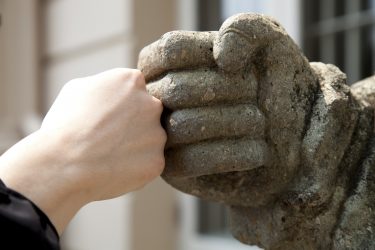


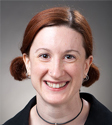
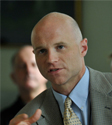
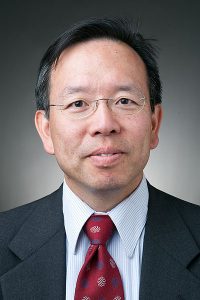
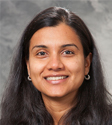

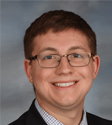
You must be logged in to post a comment.